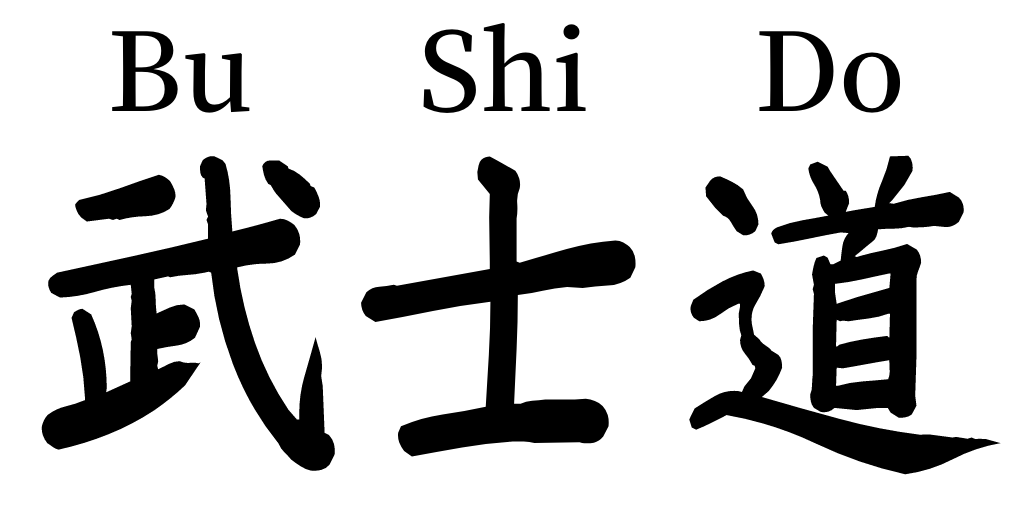The Bushido Code: Unveiling the Way of the Warrior
Introduction
The Bushido code, also known as "The Way of the Warrior," is a profound set of moral principles and ethical values that originated in Japan. Developed over centuries, this ancient code served as the foundation for the conduct and behavior of the samurai, the elite warrior class of feudal Japan. Beyond just a set of rules, Bushido encompassed a complete way of life, shaping the character and mindset of these noble warriors.
Origins and Development
The roots of Bushido can be traced back to the medieval era of Japan, during the feudal period when local warlords, known as daimyo, governed various regions of the country. The samurai, serving as the military class and protectors of the daimyo, needed a code of conduct to guide their actions both on and off the battlefield.
Over time, these principles evolved, influenced by various philosophical, religious, and cultural factors. Zen Buddhism and Confucianism played crucial roles in shaping the Bushido code, infusing it with notions of discipline, loyalty, and self-improvement.
Key Tenets of Bushido
The Bushido code comprised several core tenets that formed the essence of a samurai's character. Let's explore these key takeaways and delve into the words and philosophy of Yamamoto Tsunetomo, a samurai from the early 18th century, who offered profound insights in the famous text "Hagakure: The Book of the Samurai."
-
Rectitude (義, Gi):
This principle emphasizes moral integrity, righteousness, and the importance of making ethical decisions. Samurai were expected to uphold a strong sense of honor and act in a just and virtuous manner.
Yamamoto Tsunetomo stated in "Hagakure": "The Way of the Samurai is found in death. When it comes to either/or, there is only the quick choice of death. It is not particularly difficult. Be determined and advance."
-
Courage (勇, Yuu):
Fearlessness in the face of adversity was highly regarded in Bushido. Samurai were taught to embrace bravery and remain composed even in the most challenging situations.
Yamamoto Tsunetomo's words on courage: "If one fully understands the present moment, there will be nothing else to do, and nothing else to pursue. Live being true to the single purpose of the moment."
-
Benevolence (仁, Jin):
Compassion and empathy were considered essential qualities of a true warrior. Demonstrating kindness and understanding towards others, especially those in need, was highly valued.
Yamamoto Tsunetomo expressed benevolence as follows: "The Way of the Samurai is one of immediacy, and it is best to dash in headlong. It is the warrior's way to proceed directly with a determination to die."
-
Respect (礼, Rei):
Respect for one's superiors, peers, and subordinates was a fundamental aspect of Bushido. Politeness and courtesy were expected in all interactions.
Yamamoto Tsunetomo's thoughts on respect: "The Way of the Samurai is found in politeness."
-
Honesty (誠, Makoto):
Honesty and sincerity were vital components of the Bushido code. Samurai were expected to be truthful and uphold their promises.
Yamamoto Tsunetomo emphasized honesty: "The Way of the Samurai is in desperateness. Ten men or more cannot kill such a man. Common sense will not accomplish great things. Simply become insane and desperate."
-
Honor (名誉, Meiyo):
Maintaining one's honor and reputation was of utmost importance. A samurai's word was their bond, and any action that could tarnish their honor was to be avoided.
Yamamoto Tsunetomo on honor: "In the Way of the Samurai, if one uses discrimination, he will fall behind. One needs neither loyalty nor devotion, but simply to become desperate in the Way."
-
Loyalty (忠義, Chuugi):
Loyalty to one's lord, family, and comrades was a cornerstone of Bushido. Samurai were bound by a strong sense of duty and commitment to those they served.
Yamamoto Tsunetomo's view on loyalty: "Even if it seems certain that you will lose, retaliate. Neither wisdom nor technique has a place in the Way."
The Enduring Legacy of Bushido
Though the feudal era of Japan has long passed, the spirit of Bushido continues to influence Japanese culture and society. Its impact can be seen in various aspects of modern life, ranging from the strong work ethic and discipline displayed by the Japanese people to the codes of conduct followed in various martial arts schools.
Beyond Japan, the Bushido code has also captivated the interest of people worldwide, inspiring books, movies, and cultural exchanges. Its timeless wisdom, as expressed by Yamamoto Tsunetomo, continues to resonate with those seeking to embody principles such as honor, courage, and respect in their own lives.
External Links for Further Exploration
- The Book of Five Rings - A classic work on martial arts strategy and philosophy written by Miyamoto Musashi, a legendary swordsman.
- Hagakure: The Book of the Samurai - A practical and spiritual guide for samurai, compiled by Yamamoto Tsunetomo.
- Bushido: The Soul of Japan - A seminal book by Nitobe Inazo, providing insights into the spirit of Bushido.
- The Last Samurai - A captivating film that explores the clash of cultures and the essence of Bushido, starring Tom Cruise.
Conclusion
The Bushido code stands as a testament to the strength and nobility of the samurai spirit. Its principles of rectitude, courage, and benevolence continue to resonate with people worldwide, transcending time and geography. As we reflect on the legacy of Bushido, let us draw inspiration from the profound words of Yamamoto Tsunetomo and strive to uphold honor, integrity, and compassion in our own lives, seeking the true essence of "The Way of the Warrior."

Comments
Post a Comment